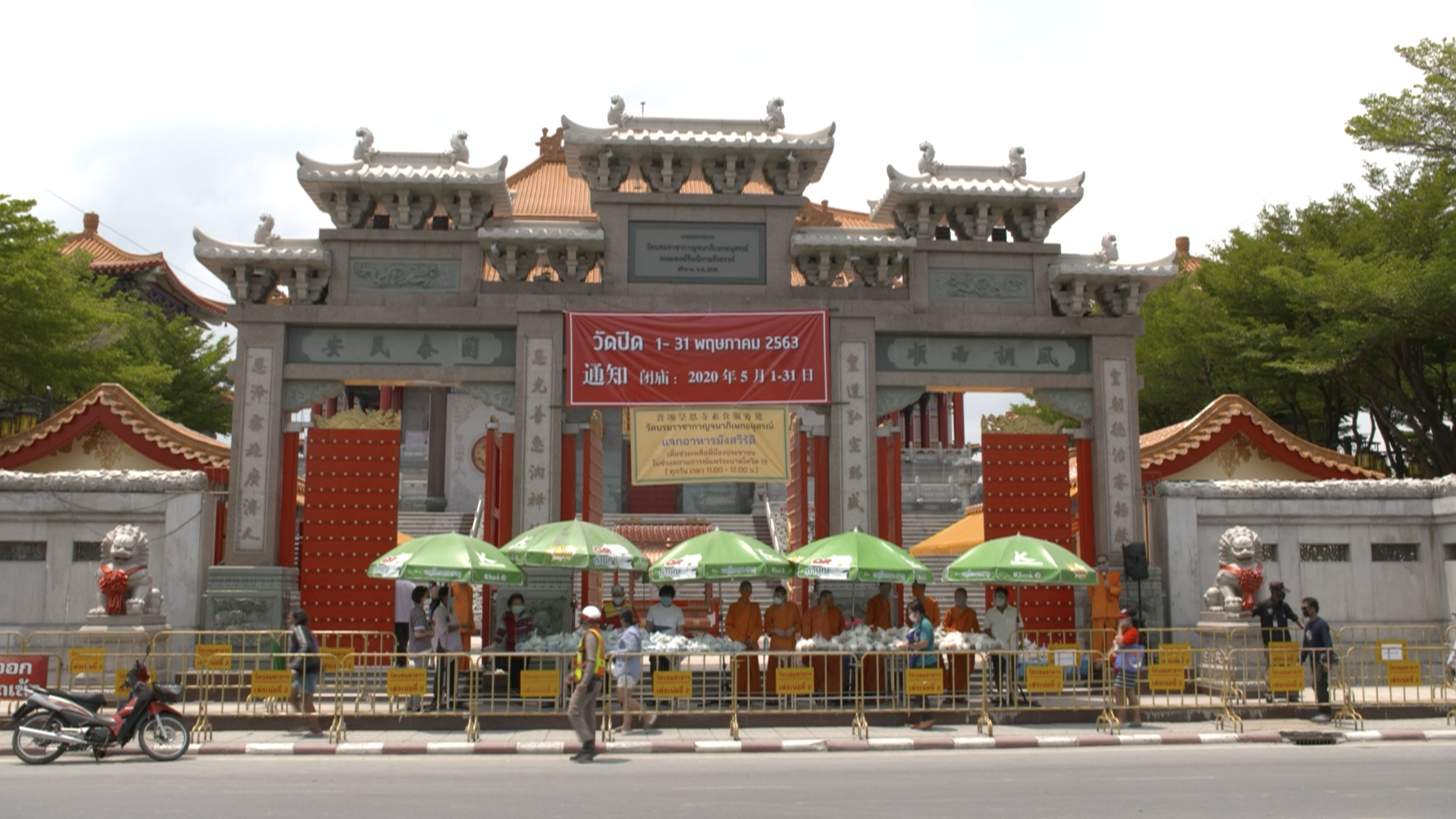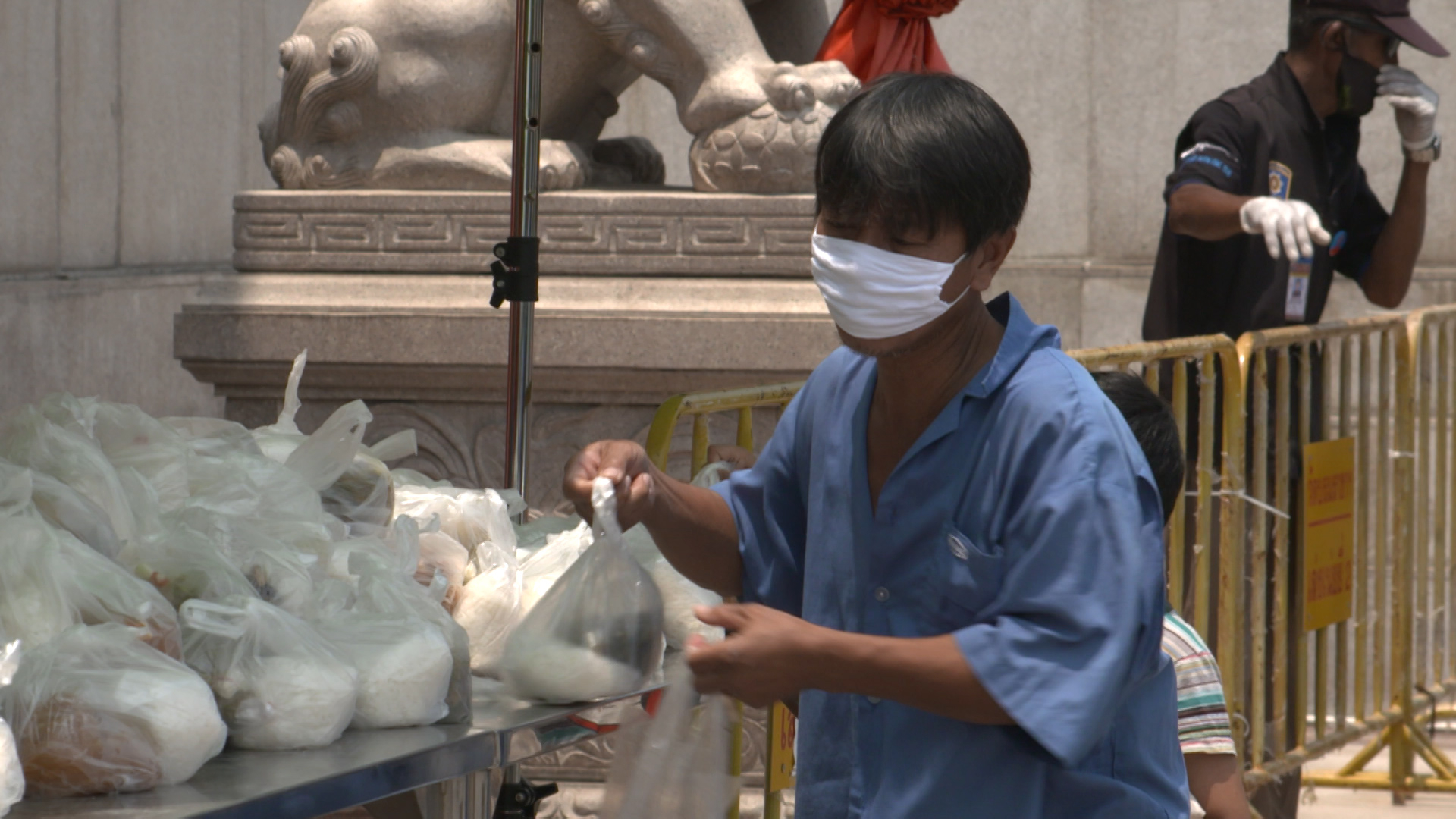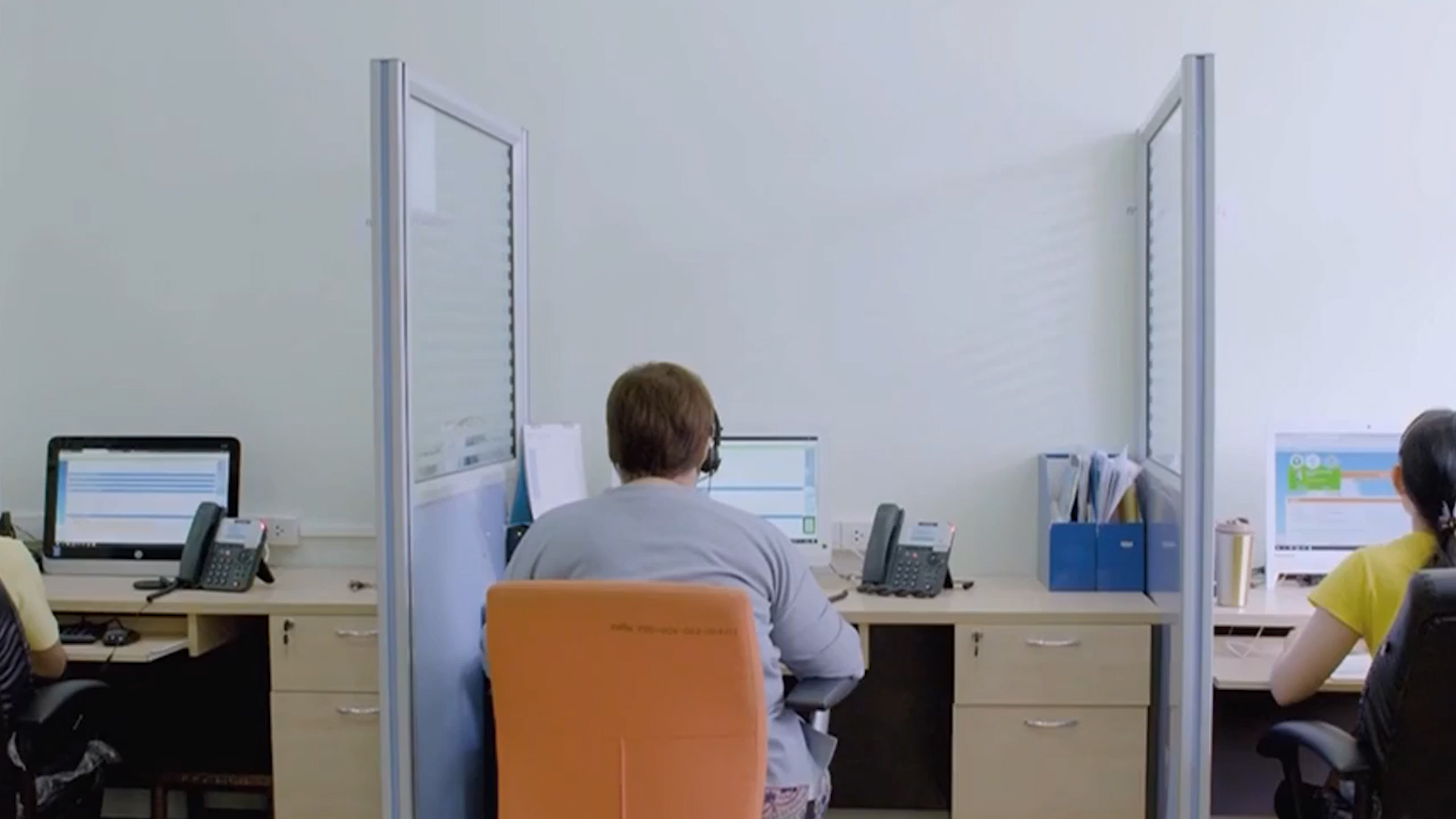03:09

As COVID-19 continues to take lives around the world, there's another public health crisis that is rearing its ugly head. One that may, perhaps unleash more death and despair than the novel coronavirus itself. Its deaths are harder to count.
In Thailand, the social and economic fissures exposed by the pandemic has resulted in mass unemployment, depleted safety nets, slipping millions in poverty.
No way out
Life was already tough for Chorladda Chumseag. But the coronavirus pandemic hit her like a ton of bricks. She lost her job as a bus ticket collector, her electricity just got cut off and in a matter of weeks, she will be evicted.
"Just thinking makes me cry," she says. "I'm so stressed. I'm about to have no home, I have no money, I have nothing. I'm at the end of the road. There's no way out for me."
She struggles with depression everyday. Everyday she has suicidal thoughts. The government cash handout of 154 U.S. dollars per month has not reached her hands.
The relief, worth 7.4 billion U.S. dollars in all, has not come fast enough for many Thais, whose everyday struggles have been worsened by sudden lack of income when domestic economic activities came to a halt. So far, 28.8 million Thais have applied, but only 13.4 million have been approved.
The longer they wait, the more desperate they become.
The daily doses of death from financial hardship have been heartbreaking – a mother unable to buy milk for her kids, a used car dealer who could not pay back loans, an English teacher despairing from financial calamity.
Going by past crises and its knock-on effects of an inevitable economic downturn, Thailand is looking at a mental health crisis, with suicide-related deaths as its major indicator.
But the situation was already much worse than that even before this pandemic. Thailand had the highest suicide rate in ASEAN, with 14.4 of suicides per 100,000 population.

People affected by unemployment following lockdown measures to halt the spread of COVID-19 line up for food donations at temples across the country. /CGTN
People affected by unemployment following lockdown measures to halt the spread of COVID-19 line up for food donations at temples across the country. /CGTN
Noppadon Kannika, director of Super Poll Research Center, has been looking economic stress, social isolation, anxiety and related to the COVID-19 pandemic.
"From our polls, we have found that the COVID-19 situation has caused increased stress in 67 percent of our respondents," he says. "It's like a pyramid. At the bottom, the majority of the population is vulnerable. So when there is a sudden shock, we find that these people feel there is no way out."
Seeking help
In the meantime, mental health hotlines nationwide are working around the clock due to calls related to the pandemic.
Calls to the government's mental health hotline have increased by almost 3,000 percent in March alone. Six hundred calls were made in March to its crisis hotline, compared to only 20 to 40 in each of the previous two months.

The Thai government's Mental Health Hotline has been inundated with calls in the past few months. The service has the benefit of being completely anonymous and thus free from the stigma that accompanies mental health in Thailand. /CGTN
The Thai government's Mental Health Hotline has been inundated with calls in the past few months. The service has the benefit of being completely anonymous and thus free from the stigma that accompanies mental health in Thailand. /CGTN
Filling the crucial gap is Thailand's first mental health app, OOCA. Through private video therapy sessions, they are hoping technology will make healthcare more accessible for those in need.
Founder, Kanpassorn Suriyasangpetch, says there are over 100 qualified therapists available through her app. It's a valuable asset during a pandemic when it has become difficult to seek help in person.
"I feel that this is a pivoting point," she says. "Not only in this difficult time like this COVID-19 pandemic era, we help people go through access because it's very hard to get bookings with psychiatrists and psychologists and also it helps people get through stigma."
(Cover image from CGTN)